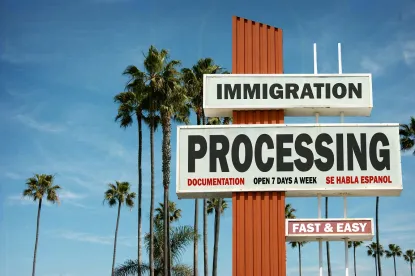Recently, the Department of Justice (DOJ) and the Department of Homeland Security (DHS) have made efforts to expedite the significant backlog of immigration cases across the country. Although the Dedicated Docket has been met with some criticism, recent data indicates it is producing results, albeit slowly.
Immigration Backlog
The backlog of immigration cases in the United States is increasingly problematic. Currently, the backlog comprises approximately 1.5 million cases with an average waiting time of over 1,200 days. Of course, such a backlog creates lengthy delays and uncertainty for individuals awaiting the determination of their pending immigration matter.
Implementation of a Dedicated Docket
To alleviate these concerns, in May of this year, the DOJ and DHS jointly announced an intention to institute a Dedicated Docket program to help curb the increasing backlog of immigration cases in the United States. The purpose of the program is to “more expeditiously and fairly” make decisions in the immigration cases of certain families who are apprehended after making an illegal entry between ports of entry along the Southwest Border. The announcement notes that “[w]hile the goal of this process is to decide cases expeditiously, fairness will not be compromised.”
The Executive Office for Immigration Review (EOIR) established a Dedicated Docket in 10 American cities: Denver, Detroit, El Paso, Los Angeles, Miami, Newark, New York City, San Diego, San Francisco, and Seattle. Roughly 35 of the country’s more than 530 Immigration Judges will handle these additional dockets in addition to their current caseload.
A recent article by NPR addressed the early results of the program. As of mid-September, the Dedicated Docket program was handling nearly 16,000 cases, and more than 100 cases had received at least an initial decision. TRAC Immigration recently reported that as of August 31, 2021, records indicated a total of 16,713 individuals comprising approximately 6,000 families are now assigned to this program. Despite these initial numbers, the program is not without its share of criticism.
Criticism of the Dedicated Docket Program
Despite initial numbers highlighting some progress, the Biden administration’s choice to implement the program drew swift criticism. Human Rights First publicly derided the program, noting risks of undermining due process in asylum adjudications while continuing Trump-era immigration policies relating to Title 42.
Other critics note the difficulty in obtaining effective legal representation for expedited dockets, citing problems dating back to the Trump administration’s problematic implementation of so-called “Rocket Dockets.”
The decision of the Biden administration to implement Dedicated Dockets is a needed first step in addressing the considerable backlog of immigration cases in the United States. However, as many critics have noted, additional steps may be required to handle the backlog crisis effectively. It remains to be seen what additional steps, if any, the Biden administration is willing to take to address this issue.



 />i
/>i

